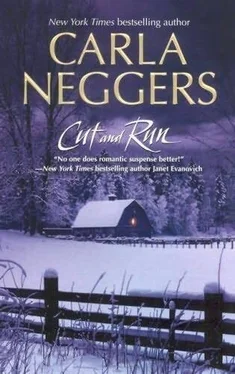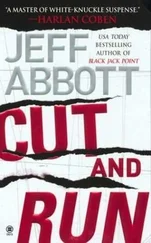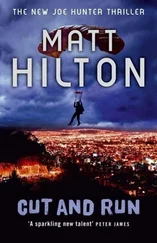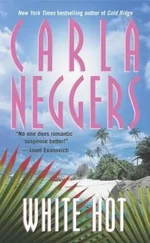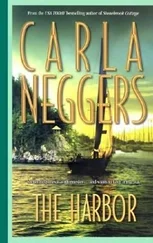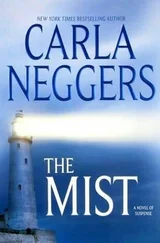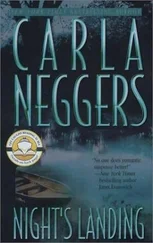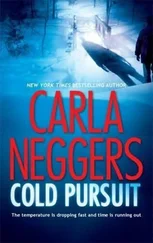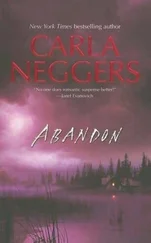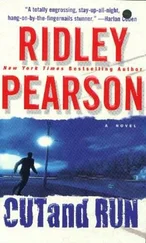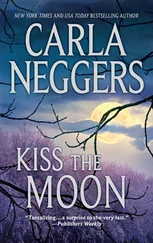“I wasn’t implying you were smart. I was implying you thought you were smart.”
“Just experienced.” He gave her a sideways glance. “You can be an irritating woman.”
“It’s the Peperkamp in me. The Falls are all so civilized. But never mind. Tell me about Phillip Bloch-and your friend, have you heard from him? Weaze, is it?”
“Otis,” Matthew said, a sudden feeling of hopelessness washing over him as he envisioned the emaciated former gunner, his friend. “Otis Raymond. We called him the Weasel in ’Nam. I haven’t heard from him. But, Juliana, I was wrong to suggest that you should feel responsible for anything that might or might not happen to him. I was hot; I needed someone to lash out at.”
“That’s okay. Musicians always have people screaming at them. We get used to it. You and Otis Raymond and Phillip Bloch were in Vietnam together?”
“We were there at the same time; I wouldn’t say together. Bloch was a platoon sergeant, I was a helicopter pilot, and Weasel was one of my door gunners. We transported troops into and out of combat.”
Juliana waited, but Matthew didn’t go on. Finally, she said, “You’re not a talkative person, are you? You say what you have to say and that’s it. I can see why you haven’t done much since LZ. When you have something else to say-something that you haven’t said in any of your other work-you’ll do another book. But not another LZ, even if that’s what your public wants. Anyway, what does a gunner do, exactly?”
“Kills people.”
Juliana smacked her mouth shut.
“That wasn’t fair,” he added quietly.
“No, maybe it was. I don’t like to be forced to talk, either.”
“So I’ve discovered.”
“I don’t know anything about the military. At best, my memories of Vietnam are dim. I remember catching scenes of the war on television, between homework assignments and practice sessions, and I remember debates in school about whether the U.S. had any business being there. But I was more interested in analyzing Bach cantatas.” Her expression was grimly self-critical. “The Vietnam War’s another huge gap in my knowledge.”
Matthew hadn’t expected her to be so perceptive, about herself, or, certainly, about him. He pulled back into himself, and when he went on, his tone was less personal, almost clinical.
“My first tour of duty, I flew the Bell UH-1 Iroquois in its transport role. Hueys were the warhorses. The UH-1Bs were the primary transport helicopters; we called them slicks. The UH-1Cs were fitted with armaments; they were the gunships-the hogs, we called them. As pilot, my job was to get us in and out of LZs safely; the slick itself was unarmed, but it could move faster than a gunship. I had a copilot up front with me. In back were the crew chief and door gunner; we communicated with them over radio. They both were armed with M-60 machine guns to protect themselves, the passengers, the crew, and the ship. If we came down in a hot LZ, we could expect plenty of fire. We were all vulnerable, but gunners were the most exposed. A lot of them didn’t live long.”
“But Otis Raymond survived?”
Matthew looked straight ahead. “Yeah, he survived. He was good-and he was lucky. We both were. When I went to LOHs for my second tour, he transferred with me.” He glanced at Juliana and gave her a small smile. “An LOH is a light observation helicopter. We’d draw fire to locate the enemy, and the gunships would come in and do their thing. By then the snakes had replaced Hueys as gunships.”
“Snakes?”
“The Bell AH-1G Cobra. It was heavily armed and a hell of a lot faster than the hogs. Part of the strategy behind the hunter-killer teams was to reduce troop losses; it was a numbers game.”
Juliana nodded, not so much understanding, he thought, as acknowledging that she was both interested and listening. “Why did you stay in for a second tour?”
He shrugged. “Somebody had to do the job. By the time we’d stayed in a year, Weasel and I figured we knew what we were doing and maybe could keep somebody else who didn’t have our experience from getting killed.”
“As a pilot, did you feel responsible for the men who flew with you?”
“Yes.”
“And you still fee responsible for Otis Raymond.”
He sighed, saying nothing. What the hell could he say?
“I won’t pretend I can even imagine what you went through,” Juliana told him quietly. “I’m sorry-”
“No, you’re not, Juliana.” He looked at the pale, beautiful face. “You’re damned lucky.”
Disgusted, Wilhelmina sat on the chair at the dusty Steinway concert grand in her niece’s quiet living room. The bright winter sun streamed in through the big windows, and she could hear the traffic down on Central Park West. She was tired. She had just spent the last three hours searching every corner of her niece’s monstrous apartment for the Minstrel’s Rough. Wilhelmina herself had never seen the Minstrel, but she knew enough about diamonds to feel sure she’d recognize the world’s largest uncut diamond when she saw it.
But she’d found neither the Minstrel nor any indication that Juliana had stashed it elsewhere or had even heard of the legendary stone. All she’d found of interest, minor interest at that, was a gigantic closet full of old clothes and a half-dozen different kinds of colored mousse-and cosmetics! Wilhelmina had never seen so much face paint! Such colors! And she didn’t for a moment believe they belonged to a friend, as Juliana had suggested. Juliana was too solitary a person, and somehow the things reminded Wilhelmina of her niece. Whatever the case, that was her business and of no consequence to her aging aunt.
Yet Wilhelmina was still positive that Juliana had the Minstrel’s Rough. It would explain so much. It was also logical, and the old Dutchwoman was not one to back away prematurely from what made sense.
At any rate, it had been a frustrating morning. The man posted outside the Beresford continued to stand in the cold, but Wilhelmina paid no attention to him whatever. But better to be aware of him than not.
She had made a cup of café au lait and now was tempted to play the piano. Would any of Juliana’s monumental talent seep from the ivory keys into her old bones? Bah, she thought, I must be more tired than I feel.
The Chopin Piano Concerto No. 1 was open on the rack. Wilhelmina knew it to be a difficult piece, but she’d never played it. She wondered if she should give it a try now, to clear her mind.
She pressed middle C very slowly, and no sound came out.
Hendrik…
Yes, he was in her thoughts. Catharina had called, tearfully telling her older sister about seeing him that morning. Wilhelmina wished she’d been able to speak up and ask Catharina to relate every detail of their conversation…how he’d looked, sounded, must have felt. Everything.
Not that she cared, of course.
“You’re kidding yourself, Willie,” she muttered. “You still care. You always will.”
Suddenly she felt eerily alone amidst all that space, with so many people in the city around her. At home in Rotterdam, she never thought about being alone.
“Liar,” she said aloud, with vehemence.
She jumped up, suddenly spooked, and ran around into all the rooms, pulling drapes, checking the locks on the doors and windows, and then came back to the living room, shaking. She turned on the stereo. She didn’t care what she listened to. Anything besides the cries and the screams and the prayers and the loneliness that too often whispered to her in the night.
Hendrik…may God damn you to hell!
And not just for what he’d done-but for showing her what might have been.
“You’re being unfair,” Juliana informed Matthew as he walked with her to the shuttle gate. “Unfair, unreasonable, and damned provoking.”
Читать дальше
Конец ознакомительного отрывка
Купить книгу
